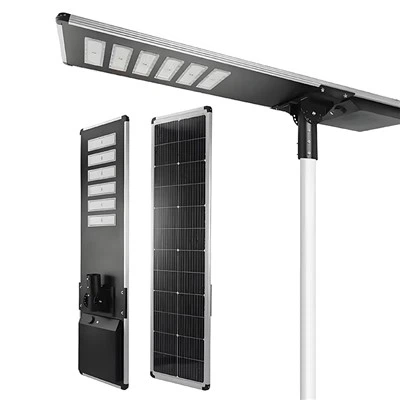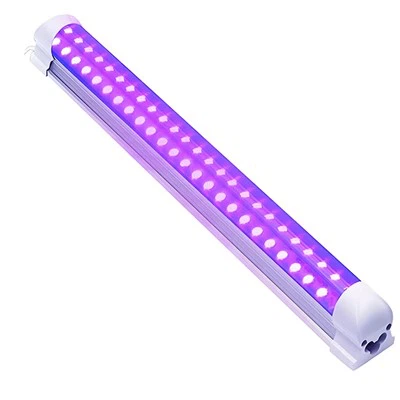Do you have a solar light that abruptly shut off after it rained and are curious as to why it happened? No more enigmas! To provide you with a response, we have done our research.
After a heavy downpour, your solar lights may have water buildup inside if they abruptly cease operating. Internal circuitry and electrical equipment may be harmed by this water buildup. By removing the panel head and blotting the water with a dry cloth, you can verify this.
There are further causes for solar lights to quit functioning. We will go into more information about them in this piece. We will also address some often asked problems and talk about how to remedy them.
Why And What To Do When Solar Lights Stop Working After Rain
As solar lights require sunshine to operate, they are designed for outdoor usage. Solar lights occasionally, nevertheless, abruptly shut off after it rains.
Although the rain won't harm the gadget, it might assist wipe dirt off the panel if it's installed incorrectly, rendering the solar light ineffective. When it rains, your solar lights should be positioned such that water will still flow down; otherwise, water will collect inside the device and cause it to malfunction.
Water buildup within the device has the potential to damage the electrical circuitry and disable the solar lights. The first thing you may do in this situation is to inspect the device.
To access the gadget, detach the panel from its attachment. Next, using a soft, dry towel, wipe away the water and wet the interior panel. Set the blower to cold if you intend to use one to prevent heating the wires. To prevent it from getting worse, take care not to damage the connections inside.
As solar lights require sunshine to operate, they are designed for outdoor usage. Solar lights occasionally, nevertheless, abruptly shut off after it rains.
Although the rain won't harm the gadget, it might assist wipe dirt off the panel if it's installed incorrectly, rendering the solar light ineffective. When it rains, your solar lights should be positioned such that water will still flow down; otherwise, water will collect inside the device and cause it to malfunction.
Water buildup within the device has the potential to damage the electrical circuitry and disable the solar lights. The first thing you may do in this situation is to inspect the device.
To access the gadget, detach the panel from its attachment. Next, using a soft, dry towel, wipe away the water and wet the interior panel. Set the blower to cold if you intend to use one to prevent heating the wires. To prevent it from getting worse, take care not to damage the connections inside.
Other Common Reasons For Non-Functional Solar Lights
If a solar light isn't working for you, there are additional possibilities than water accumulation inside the solar lights. These are a few of the typical explanations:
Not Enough Sunlight
By its very name, solar lights are dependent on the sun for their heat and power. You should probably check the placement of your solar light if it stops operating. The panel has to be placed where it can receive the maximum sunlight.
Another reason your solar lights don't get enough sunlight is during overcast and rainy seasons. During this time of day, the sun is not so intense that solar lights cannot obtain enough energy from it.
Battery Needs Replacing
Unknown to many homes, solar lights include batteries. Energy gathered by the panel is stored inside the solar devices' batteries. The solar lights may not function if the solar batteries are too old or worn out. Be careful to remove the pull tab from freshly acquired batteries in order for the solar light to turn on.
Dirty Solar Panels
The buildup of dirt and dust is one of the causes of any equipment's improper operation. You must take care to keep your solar panels clean because if dirt and grime accumulates and thickens, it will cover the panel and block the sun's energy from going through.
Broken Sensor
If none of the aforementioned causes constitute the issue, you must determine whether the panel sensors are still operational. Day and night are discernible by a sensor. The gadget will be turned off during the day and turned back on at night. This might be an issue if they don't come on at night.
How Can I Repair A Faulty Solar Light?
It's time to learn how to fix your solar lights now that you are aware of the typical causes of their failure. The following are some methods for fixing them:
1. The panel must be positioned correctly.
Install the solar panels where they can receive the maximum sunshine to guarantee that your solar light operates effectively. Make sure there aren't any big trees or structures blocking the sun. They will still charge in the shade, but charging in full sunshine will yield the best results.
2. Examine the batteries
The battery is either too old or worn out if there is an issue. The best option is to replace them. Ideally, you should change the batteries in your solar lights once or twice a year.
3. Panel Cleaning
Cleaning of your solar panels should be done at least once every six months. Nonetheless, you should clean the panel twice every six months if you live in a dusty area.
4. Change out the sensor
You must generate darkness by covering your solar light sensor with a dark cloth in order to check if it is broken. If the light does not turn off when it is dark outside, the sensor could not be working properly. It would be beneficial if you changed the defective sensor to get it working again. You can ask your manufacturer whether they provide replacement sensors.
How To Safely Clean Solar Panels?
Maintain your solar panels clean to prevent them from performing inefficiently. In addition to operating effectively, a clean solar panel may save household energy expenditures.
Yet, in order to prevent damaging them with your hands, you must be aware of proper cleaning techniques. Below are the steps to follow.
1. Create A Cleaning Calendar
It is advised to clean your solar panels when the weather is colder since this lessens the chance of the glass splitting as the water dries.
2. Turn the Panel Off
You must shut down the system before starting the cleaning procedure. If you are unsure of how to securely shut down your solar panels, see your manufacturer's documentation.
3. The Ground Is Clean
Cleaning your solar panels from the ground is the most secure option. The water may be directed to the panels using a hose. Also, using a wiper with a long handle might be beneficial so you can avoid stepping onto the panel. Wearing gloves and the appropriate safety gear is a necessary if your panel calls for you to clean the roof, nevertheless.
4. Use Water And Soap
You can use mild soap and water to remove dirt. Never use an abrasive brush since it can damage your panel and produce scratches. While cleaning, use a gentle scrubber and soapy water.
5. Request Expert Assistance
You may hire a professional to clean your solar panels for you if they require extensive and thorough cleaning. Also, if you don't know how to clean your solar panels, don't be obstinate about it. It won't hurt to look for expert assistance.
Can Solar Lights Be Left On In The Rain?
Because they are intended for outdoor usage, the majority of solar lights are water-resistant. Because of this, you may leave your solar lights outside in the rain and still expect them to work normally, unless they have moisture buildup, which might lead to a problem from faulty installation.
Solar lights: Can They Be Charged On Cloudy Days?
Although some solar energy may still get through even on days that are gloomy or even rainy, solar lights can still be charged. The light it will produce, but, won't be as strong as the light it can produce when charged on a bright sunny day. They should produce 10% to 25% less power than usual, depending on the amount of cloud cover.
Solar lighting operates throughout the winter.
Individuals who reside in snowy regions enquire as to whether solar lighting can lower household energy expenditures. If solar lights are charged by enough sunshine, they can function over the winter. For the solar lights to fully charge and be ready to provide light at night, 6 to 8 hours of daylight are required.
What Is the Lifespan of Solar Lights?
How well-maintained solar lights are will affect how long they last. The battery may often last up to three to four years, and the LED for ten years, given regular care. If mending doesn't work, you will be able to tell when to replace them.
Can Normal AA Batteries Be Used With Solar Lights?
Solar lights take in solar energy and transform it into electrical energy. These electrical resources are kept in reserve in a battery. Yet, a common worry among homeowners is whether they can power solar lights with standard AA batteries.
Regular batteries can only be used by solar lamps temporarily. They often cannot utilize standard batteries because they are disposable. As they cannot be recharged, using them to power solar lights would simply result in the entire device being harmed.
Solar lights can be powered by rechargeable lithium-ion or lithium-iron phosphate batteries. You may use a nickel metal hydride battery for tiny solar lamps.

|
Product name |
Benwei Led Flood Light |
|
LED power |
100W/200W/300W |
|
CCT |
3000K-6000K |
|
CRI |
>60 |
|
Housing material |
Aluminum |
|
Adaptor |
Wall charger and Car charger |
|
Working Temperature |
-25 ℃ to 50 ℃ |
|
Beam Angle |
120 ℃ |






